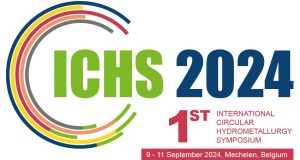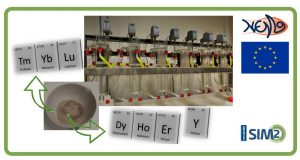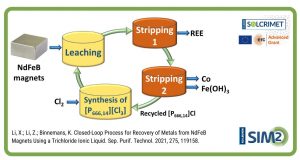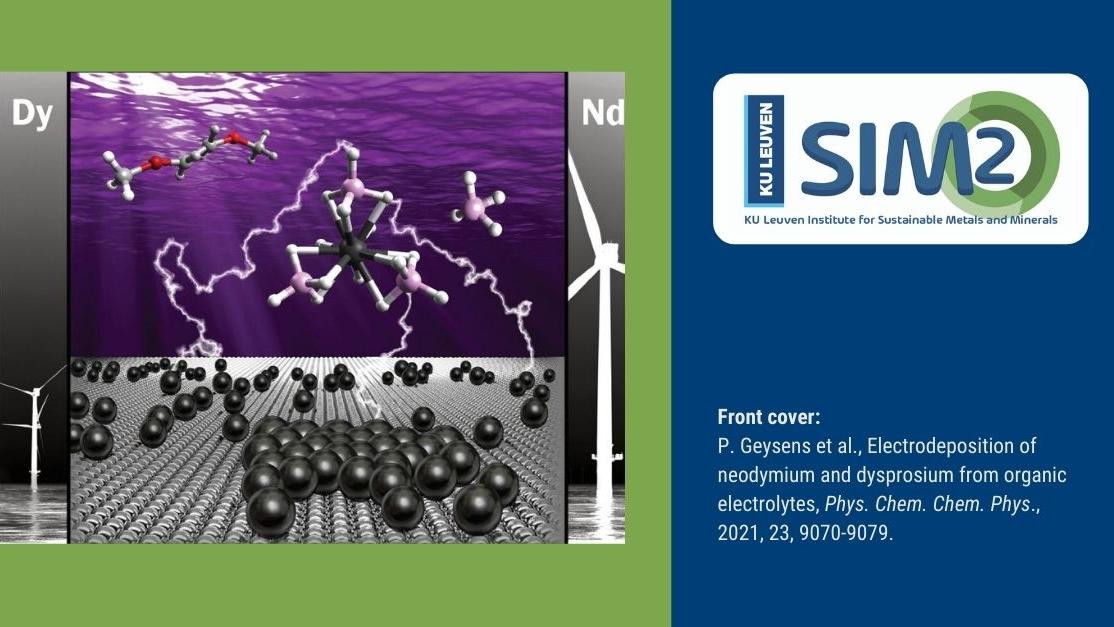In a new ETN DEMETER Policy Brief, the authors Gwendolyn Bailey and Karel Van Acker (SIM² KU Leuven) motivate why the time has come for the electric-vehicle industry (EV industry) to start working together with the producers of rare earths (REEs). The goal of this Policy Brief is to communicate the specific needs identified by the sustainability assessment for permanent magnet motors use in (Hybrid) Electric Vehicles ((H)EVs) to better inform and support decision-making. (Leuven, 10-9-2018)
Summary
 Information regarding sustainability is key for decision makers. This also holds true for the field of rare-earth permanent-magnet (PM) motors, for which the sustainability (economic, environment and social) is unfortunately not well understood and could become a show-stopper for future developments. The goal of this Policy Brief is to communicate the specific needs identified by the sustainability assessment for PM motors to better inform and support decision-making. While literature reviews are useful and informative, being informed is not enough and actions need to be taken. Therefore, we are strongly recommending a greater, synergistic collaboration among industry suppliers and buyers of the two industries: the rare-earth element producers and the hybrid/electric-vehicle (H)EV makers.
Information regarding sustainability is key for decision makers. This also holds true for the field of rare-earth permanent-magnet (PM) motors, for which the sustainability (economic, environment and social) is unfortunately not well understood and could become a show-stopper for future developments. The goal of this Policy Brief is to communicate the specific needs identified by the sustainability assessment for PM motors to better inform and support decision-making. While literature reviews are useful and informative, being informed is not enough and actions need to be taken. Therefore, we are strongly recommending a greater, synergistic collaboration among industry suppliers and buyers of the two industries: the rare-earth element producers and the hybrid/electric-vehicle (H)EV makers.
The take home messages of this DEMETER Policy Brief are:
- A collaboration and synergy between the electric-vehicle (EV) industry and the rare-earth permanent-magnet (REE PM) motor industry is the key to a sustainable supply of REE materials. This must be underpinned by materials passports.
- The majority of the current EV industry does not take into account REE end-of-life treatment or disposal, which hinders optimal recovery.
- Some EV companies, such as Tesla, have shown signs of hesitating to engage with the REE supply chain and have purposely designed their motors without REE permanent magnets…but this is changing!
- Exporting environmental pollution is both inherently unsustainable and unethical.
Key info DEMETER Policy Brief
- Download DEMETER Policy Brief Sep 2018 here
- Authors: Gwendolyn Bailey and Karel Van Acker (KU Leuven)
- Design: Sciencewriter (si)
- Disclaimer: the views expressed in this article are the private views of the author and may not, under any circumstances, be interpreted as stating an official position of ETN DEMETER or SIM² KU Leuven.
Closing DEMETER Symposium “Rare-earth permanent magnet motors and the e-mobility revolution”
This closing Symposium will be held in Leuven from 5 to 7 of February 2019 in Leuven, Belgium. It will feature a number of established speakers in the field of rare earths, permanent magnets and HEVs. The Symposium is co-organised by GloREIA. For more information follow this link: https://etn-demeter.eu/etn-demeter-concluding-symposium/

Acknowledgements: This project has received funding from the European Union’s EU Framework Programme for Research and Innovation Horizon 2020 under Grant Agreement No 674973.

 European Training Network for the Design and Recycling of Rare-Earth Permanent Magnet Motors and Generators in Hybrid and Full Electric Vehicles (DEMETER)
European Training Network for the Design and Recycling of Rare-Earth Permanent Magnet Motors and Generators in Hybrid and Full Electric Vehicles (DEMETER)



